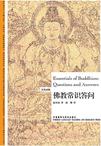佛教常识答问
出版时间:2012-10-31 出版社:外语教学与研究出版社 作者:赵朴初 页数:271 译者:赵桐
Tag标签:无
内容概要
赵朴初先生本着极其严谨的态度来写作《佛教常识答问(汉英对照)》。他在前言中称:“我喜欢‘小题大做’,而不愿‘大题小做’,更害怕‘有题空做’。”正是因为这样的情怀,作者将佛教两千多年的历史源流、高深的教理教义、浩如烟海的经典著作,深入浅出地概括成为“常识答问”。这《佛教常识答问(汉英对照)》虽冠以“常识”之名,却实为一部佛学入门大纲,对于希望了解佛学常识以及对佛学感兴趣的读者而言,是一部不可多得的启蒙读物。 《佛教常识答问(汉英对照)》自初版以来,在中国大陆已印行达几十万册,还被译成英文、日文、韩文等多个外语版本,是当之无愧的佛学经典著作。
作者简介
赵朴初,(1907-2000),安徽太湖人。书法家、佛学家、社会活动家。幼承家学,尤勤于文史哲的研习,大学时代开始探研佛教教义,后从事佛教及社会救济工作。1945年参与发起成立中国民主促进会。1952年参加发起筹建中国佛教协会,后任副会长兼秘书长。1980年任中国佛教协会会长、中国佛学院院长、中国宗教和平委员会主席。曾任全国政协副主席、中国民主促进会名誉主席、中国书法家协会副主席等职。著有《佛教常识答问》、《滴水集》、《片石集》、《灵山集》等。 赵桐,1981年毕业于首都师范大学中文系,获文学学士学位。1993年至1995年在斯里兰卡凯拉尼亚大学佛学、巴利语研究生院学习,获佛学硕士学位。自1996年开始从事佛学著作的英汉互译工作,先后为赵朴初先生、一诚法师等进行佛学著作的文字翻译,曾担任第一届、第二届世界佛教论坛的翻译工作。
书籍目录
编辑凡例译者前言序壹 佛陀和佛教的创立贰 佛法的基本内容和佛教经籍叁 僧伽和佛的弟子肆 佛教在印度的发展、衰灭和复兴伍 佛教在中国的传播、发展和演变附录:巴、英、汉佛教术语对照表注释
章节摘录
Q:In order to benefit the public welfare and to identify with others,is it necessary for a bodhisatta to acquire various kinds of worldly knowledge? A:For the interest of human beings, it is necessary for a bodhisatta to study extensively and to be well informed. Buddhism requires bodhisatta aspirants to learn the Five Vidya(S. Vidya or P. vijja, meaning knowledge),these are: (1)Sabda-vidya,viz.phonology and philology; (2)Silpakarma-vidya,viz. all technology,techniques,crafts,arithmetic,calendar,etc.; (3)Cikitsa-vidya,viz.medical science and pharmacology; (4)Hetu-vidya,viz.logic; (5)Adhyatma-vidya,viz.Buddhist studies. The five vidyas must be mastered by scholars.“To be broadly erudite, and sincerely compassionate” is the requirement for bodhisattahood. Mahayana Buddhism particularly calls for learning whatever is difficult to learn, and all that should be learned. Q:Please tell us more of the features of Mahayana Buddhism. A:Next,I will talk about the theory of the empty nature(sunnata) of all dhammas,which follows from the notion of Dependent Origination.It holds that all dhammas are simply the cooperation of relative causes and conditions. Iherefore,there is no substance in them. In other words, all dhammas are nothing but the phenomena of cooperation of causes and conditions. Apart from phenomena there is no noumenon as their dominator. When I said previously that“There is no ego within all dhammas”,I was speaking of the absence of “self”(atta) of human beings. And now I add the absence of self of all dhammas.The former is to deny self in human beings,and prove“non-substantiality in beings, while the latter is to deny the self in dhammas,and prove“non-substantiality in dhammas”. 问:菩萨为了利行同事,是否应当学习世间各种学问? 答:菩萨为了利益众生,必须广学多闻。佛教要求菩萨行者学习五明(Vidya就是“学”); (1)声明,即声韵学和语文学; (2)工巧明,即一切工艺、技术、算学、历数等; (3)医方明,即医药学; (4)因明,即逻辑学; (5)内明,即佛学。五明是学者必须学习之处。“学处广大,悲心恳切”是菩萨的条件。大乘佛教号召难学能学,尽一切学。 问:请再讲一讲大乘佛教的其他特点。 答:其次是根据缘起的道理而说法性空。这就是说,一切法既是因缘和合而起,所以都没有实体;换句话说,一切法都只是因缘和合的现象,在现象上找不到作为主宰的本体。前面所说的“诸法无我”是指人的“我”,现在进一步说法的“我”也没有。前面是破“人我执”,说“人空”;现在是破“法我执”,说“法”空。 ……
图书封面
图书标签Tags
无
评论、评分、阅读与下载
用户评论 (总计0条)
相关图书
- 全国二级建造师执业资格考试教材解读与实战模拟——市政公用工程管理与实务
- 清宮·情空2·恍若隔世
- 广西财政史
- 全国二级建造师执业资格考试教材解读与实战模拟——水利水电工程管理与实务 (第2版)
- 清宮·情空·二部曲1·再續前緣
- 超級快打旋風 Ⅳ 最強戰術指南
- 清宮·情空·二部曲2·後宮陰雲
- 清宮·情空·現代篇1·轉世的戀人
- 清宮·情空·現代篇2·皇家的祕密
- 清宮·情空·歐洲篇1·未知的旅程
- 清宮·情空·歐洲篇2·再續前世緣
- 穿越變蘿莉1
- 穿越變蘿莉2
- 穿越變蘿莉3
- 戦国武将名言録
- 穿越變蘿莉4
- 穿越變蘿莉5
- 穿越變蘿莉6
- 穿越變蘿莉7
- 穿越變蘿莉8
- 艷色無邊前傳之一·月下美人
- 艷色無邊前傳之二·妾似朝陽
- 艷色無邊之一·水家天香
- 艷色無邊之二·水家明珠
- 艷色無邊之三·水家金釵
